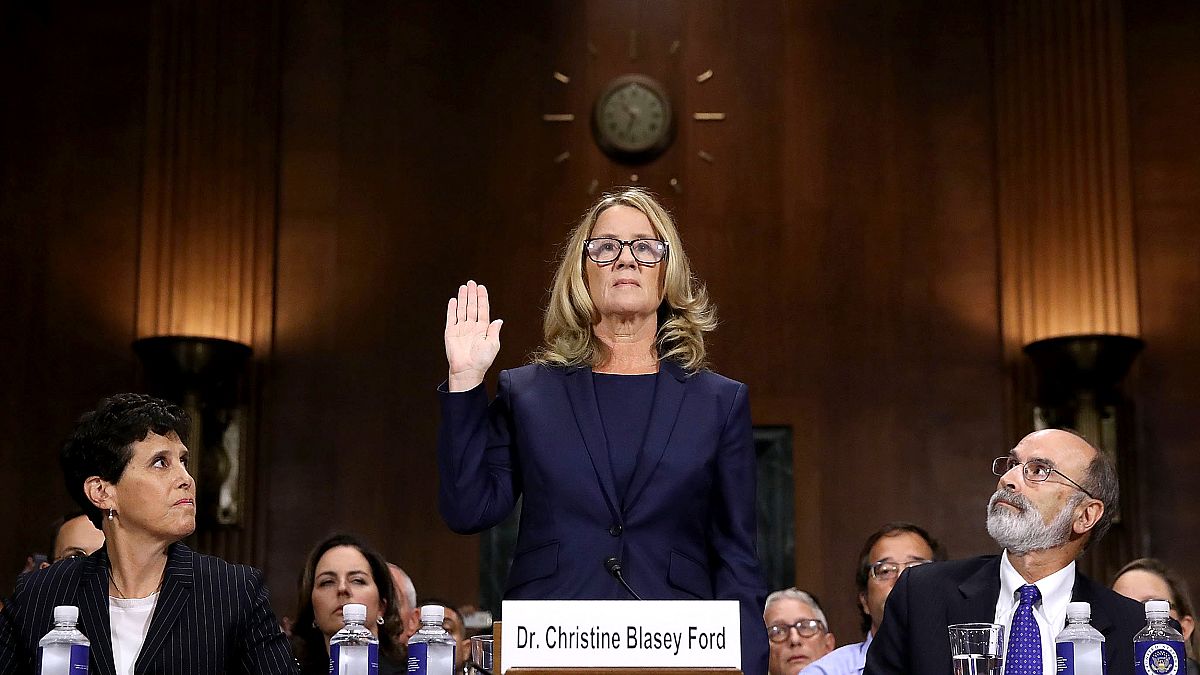"The most common statement I get from police officers is: 'Why didn't we have this 10 years ago? I've made a lot of mistakes in my career,'" said an expert.
For decades, many law enforcement officers believed victims were supposed to be able to recall all the details of their assault. If they didn't — or couldn't — their allegations must not be credible, the thinking went.
There is now the growing realization among police officers and others who encountered victims of sexual assault that they have long misread and mishandled those cases. The process was so common that experts have given it a name — "secondary victimization."
What officers previously didn't understand is the science of trauma — and how humans are wired to act in ways that are at odds with traditional police training, said Tom Tremblay, a former police chief in Burlington, Vermont.
Behaviors and reactions to trauma that police are now learning to accommodate include fragmented memories, dissociation and a kind of involuntary paralysis known as "tonic immobility."
Tremblay, who now teaches "trauma-informed training" to law enforcement and military personnel, is part of a growing movement using what scientists understand about how traumatic events impact the brain and body to transform the way authorities understand and investigate sexual assault.
They're also seeking to keep police from believing what Tremblay described as the "disturbing" myths highlighted in President Donald Trump's recent comments about Supreme Court justice Brett Kavanaugh.
Pointing to Trump's assertion that it is "a very scary time for young men in America," Tremblay said the president was implying that the "false report narrative — that myth — is real."
"It is not," he said. "There are no higher false report rates for sexual assault than any other crime."
In his trainings, Tremblay said he often hears the same refrain from veteran officers: "'Why didn't we have this 10 years ago? I've made a lot of mistakes in my career.'"
There's evidence this new approach is working. In a study published this month by the Utah Journal of Criminal Law, researchers found that prosecution rate of sexual assaults in Salt Lake County nearly quadrupled for a local police department after its officers were trained, rising from an abysmally low 6 percent to 22 percent.
One of the study's authors, Julie Valentine, a professor of nursing at Brigham Young University, said it appears that victims feel more supported with the new style of training, allowing police to conduct better investigations and collect stronger evidence. Valentine cautioned in an interview that the study's sample size of 64 people was small, but, she added: "To go from 6 percent to 22 percent is incredibly promising."
Why trauma impacts memory
Richard Alan Friedman, a professor of clinical psychiatry at Weill-Cornell Medical School, said victims may provide choppy accounts of their assaults for evolutionary reasons: to avoid becoming prey, human brains adapted to learn best during emotionally heightened experiences.
"Things that are dangerous or scary are perfectly encoded" — or turned from an event into a memory, he said. "Things that are not emotional are not attended to."
A victim may have a clear memory of an assault, but might not recall where the assault took place, he said. Such peripheral details might not become memories at all.
"That's the reason why people who recall trauma have stories that sound like there are gaps," he said. "It's not because they're not being honest. It's because they're experiencing what we would expect under the normal circumstances of trauma."
He added: "If someone can give you a clear-cut linear report, it's unusual."
Christine Blasey Ford, who accused Kavanaugh of trying to rape her at a high school party when she was 15, said during Senate testimony that the experience was "seared" into her memory — even though she couldn't remember details such as where the party occurred.
Asked what she'd never forget, Ford said: "The stairwell. The living room. The bedroom. The bed on the right side of the room ... the bathroom in close proximity. The laughter. The uproarious laughter. And the multiple attempts to escape. And the final ability to do so."
When someone experiencing a traumatic event dissociates, they might focus on something else entirely in that moment, said James Hopper, a clinical psychologist and teaching associate at Harvard University.
"They might be focused on the leaves of a plant on the other side of the room or the traffic on the street below — they're not even taking in what's being done to their bodies," said Hopper, who also writes a blog on sexual assault and the brain.
"With memory missing for that much of the assault, they're afraid to tell people," Hopper said.
Tonic immobility, meanwhile, can cause what some experts describe as "rape-induced paralysis." "You literally freeze," said Russell Strand, a retired military investigator and pioneer in trauma training for law enforcement. "You can't shout. You can't scream. It can last minutes or days."
How 'soft rooms,' sleep can help with memory
The understanding of the symptoms associated with sexual trauma is changing how police interact with victims in the immediate aftermath of assaults.
Strand developed a specialized approach for interviewing trauma victims after responding to the mass shooting in Fort Hood, Texas, on Nov. 5, 2009.
Called the Forensic Experiential Trauma Interview, it focuses less on the information police traditionally sought from victims — the who, what, when, where, why and how of an assault — and instead seeks out what someone is able to remember, especially sense memories, Strand said.
"As they're talking about sights and sounds and smells, they're remembering other aspects of their experience," he said.
The interview should be done in a "soft room," he said — a place without the sparse, unwelcoming décor of a typical police interview room: have comfortable chairs, a rug or carpet, pictures on the wall and use lamps instead of harsh lighting. "People remember more if they're comfortable and safe — both physically and psychologically," Strand said.
Another important change, Tremblay said, is to limit the initial interview with a victim. Instead of talking for three or four hours immediately after an assault is reported, Tremblay said that officers should, if possible, only gather enough information to keep the investigation going — then wait a couple of days for a lengthier conversation.
"After a sleep cycle or two, the fragmented memory starts coming back," he said.
And when questions are asked, Tremblay added, they shouldn't be in the form of what can seem like an accusation — why did you go to the park the night you were assaulted? Why didn't you fight back?
Instead, he said, investigators should reframe their questions: "When you went to the party, help us understand what you were experiencing."
It's unclear how many police departments, prosecutors, sheriff's offices and others have adopted these measures. Strand estimates that he's trained between 1,000 and 2,000 people in the United States and Canada for a certification program he's developing.
The "vast majority" of police academies and colleges still teach the old model of interviewing, he said, and many officers rarely get much specialized sexual assault training at all.
Tremblay agreed, though he was optimistic about where law enforcement is headed on the issue. Recalling the officers who tell him they wished they'd been trained a decade ago, he said he's heard some variation of that comment at every one of the 100 trainings he's conducted over the last half-decade.
"I tell them, 'You can't change where you started, but you can change the ending,'" he said.


